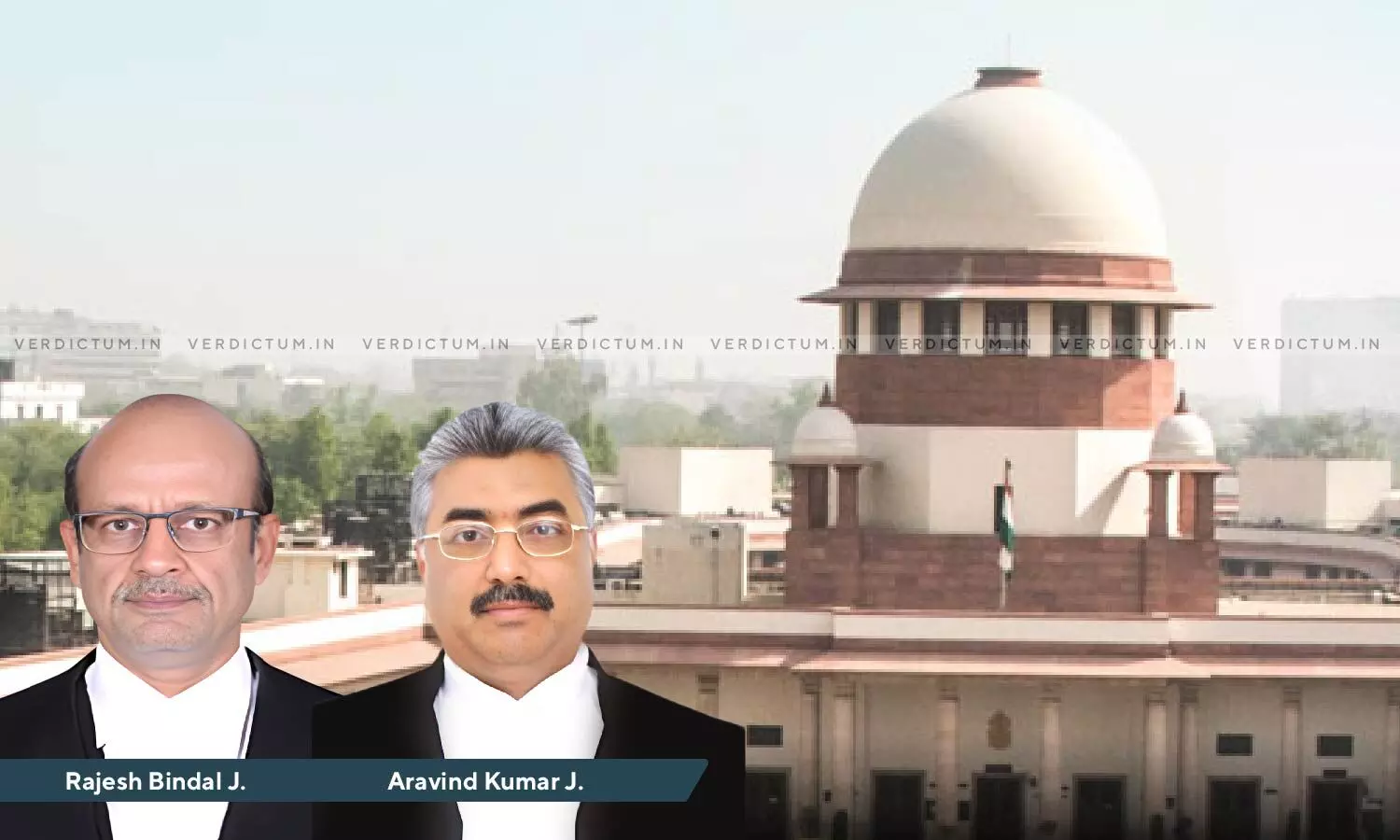
Onus To Prove Acquisition By Adverse Possession Lay On Defendant Once Title Of Property Has Been Proved By Plaintiff: SC
 |
|The Supreme Court has held that once the title of the property has been proved by the plaintiff, the onus to prove acquisition by adverse possession lay on the defendant.
“It is trite law that once the title of the property has been upheld namely a finding has been recorded by a judgment and decree in the name of plaintiff in an earlier suit, in such circumstances, the onus to prove acquisition by adverse possession lay on the defendant.”, the bench of Justice Rajesh Bindal and Justice Aravind Kumar held.
In this case the father of the appellants filed a suit for declaration of title and perpetual injunction as an indigent person which came to be dismissed by the Trial Court. A suit was filed by the appellants seeking partition and separate possession against their father and the purchaser of suit schedule property, namely, Mudegowda (the deceased respondent), which was also dismissed.
Appellants filed a suit against Mudegowda for perpetual injunction in respect of suit schedule property, which suit came to be dismissed whereunder it was held that Mudegowda possessed a valid title to the suit property. It was also observed that appellants herein who were the plaintiffs in the said suit had failed to establish that they were in possession of the suit schedule property, nor did they contended that they have perfected their title by adverse possession.
In the light of observation made to the effect that Mudegowda was at liberty to seek for possession of suit schedule property resulted in Mudegowda filing a suit, which was decreed in his favour. However, the appeal filed by the appellants herein came to be allowed on the ground that the Munsif Court had no pecuniary jurisdiction to deal with the matter. Plaint was registered for possession which came to be dismissed.
Being aggrieved by the aforesaid judgment and decree an appeal 03 was filed wherein the issue of limitation apart from other grounds was canvassed by the defendants, namely, the appellants herein. The High Court held that there was no necessity for plaintiff to have filed suit for declaration of title since his title had been declared as valid in the earlier litigation between the same parties.
Advocate Vrinda Bhandari appeared for appellants-defendants whereas Advocate Hetu Arora Sethi appeared for Respondent.
The Apex Court observed that the plaintiff in his deposition specifically deposed that he was in possession of the suit property after having purchased the same from father of appellants herein.
The Court further noted that the mother of the defendant deposed that she was in possession of the suit property 14 years prior to the recording of a deposition which was in the year 2002. “It is for this precise reason the plea that was raised by the appellants before the learned Trial Judge as well as the High Court that they have perfected title to the suit property by adverse possession, has been negative”, said the Court.
The Court observed that the title of the property has been decreed in the name of Mudegowda and thus there was no requirement for the deceased respondent to establish possession prior to the institution of the suit.
Accordingly the plea was dismissed.
Cause Title- Prasanna And Others V. Mudegowda (D) By Lrs.
Click here to read/download Judgment